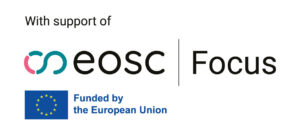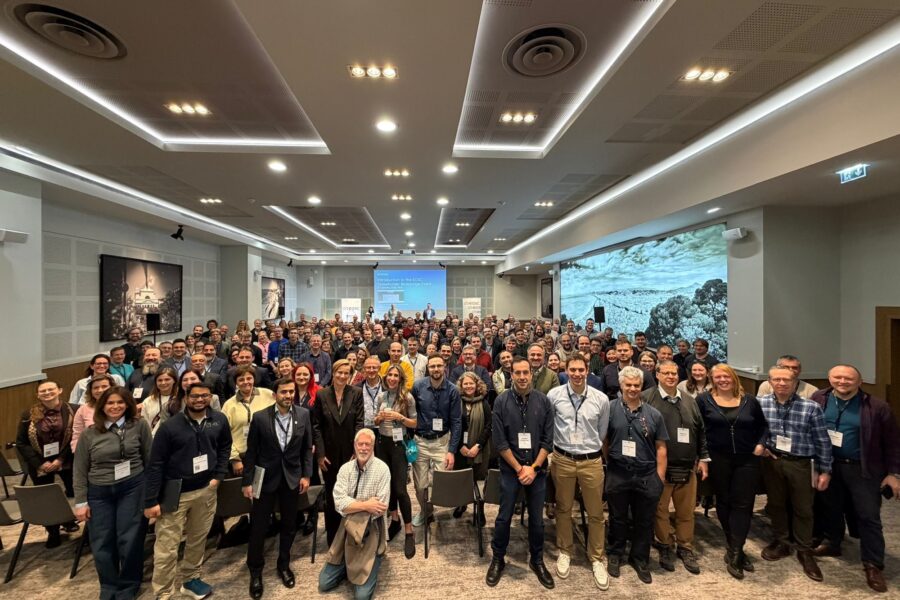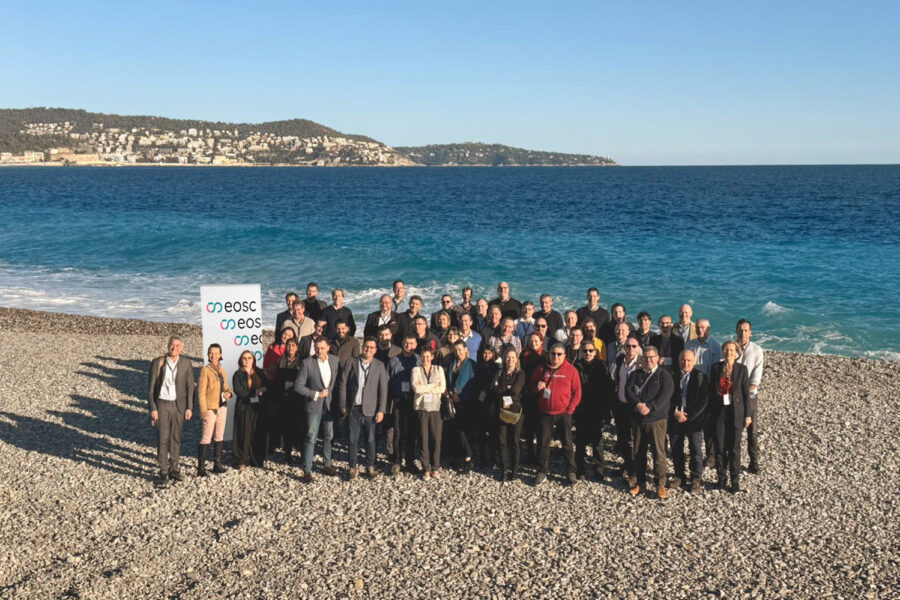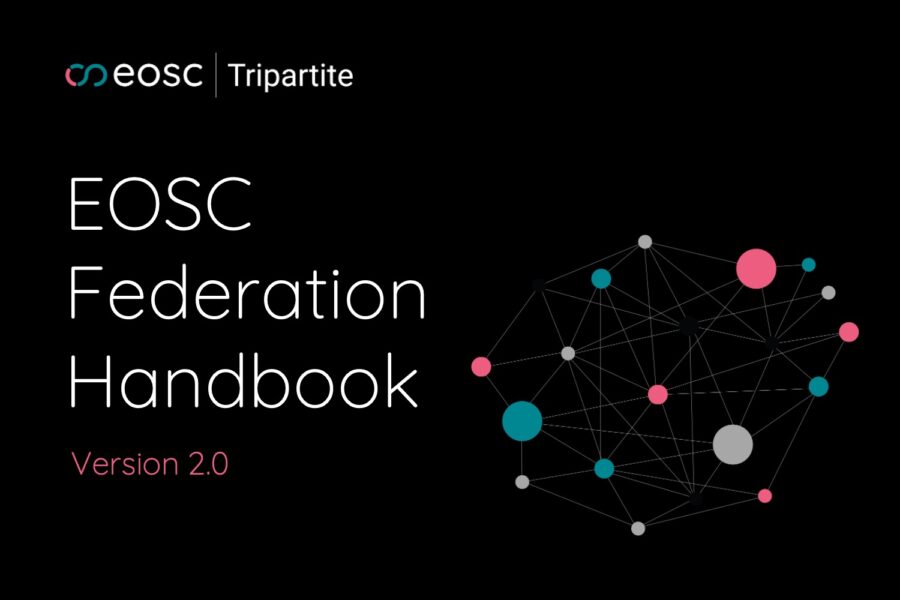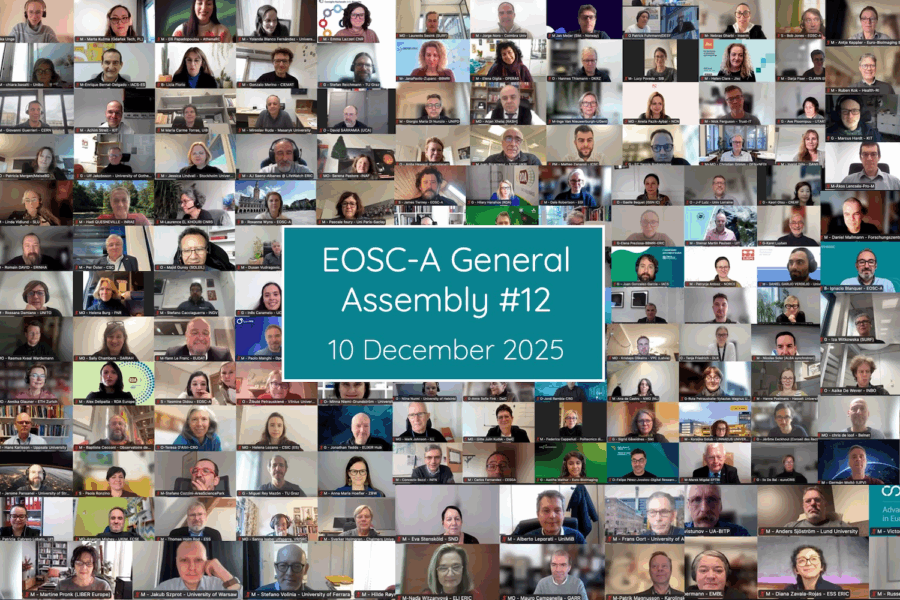ONLINE — Spain held its third National Tripartite Event (NTE) on 24 September 2024, organised by the Spanish National Research Council (CSIC). The virtual event brought together 46 representatives from research performing and funding organisations, e-Infrastructure providers, and policy makers to discuss the latest developments in the EOSC ecosystem.
Moderated by Ignacio Blanquer, representing the EOSC-A Board of Directors and Valencia Polytechnic University (UPV), the opening session served to welcome the community. The programme was organised into three blocks, covering the EOSC governance, new INFRAEOSC projects with Spanish partners, and updates on the EOSC Federation.
EOSC governance
Karel Luyben, President of EOSC-A, explained how EOSC will serve as an extra support for researchers in Europe. The future EOSC Federation will consist of EOSC Nodes, which will be a part of the Web of FAIR data and services. The current consultation on the EOSC Strategic Research & Innovation Agenda (SRIA 2.0) and Multi Annual Roadmap (MAR) 2026-2027 involves 257 EOSC-A Members and Observers, including 29 Spanish institutions. Luyben also highlighted engagement activities of EOSC-A, which include the creation of dedicated Fora for e.g. Mandated Organisations, ESFRI research infrastructures, e-infrastructures, research funding organisations, and funders, as well as the establishment of four new Task Forces and six Opportunity Area Expert Groups.
Representing the Spanish Ministry of Science and Innovation (MICIU) in the EOSC Steering Board, Inmaculada Figueroa remarked ongoing monitoring activities and informed the participants that the results of an annual survey on national contributions to EOSC will be available in the EOSC Observatory. She also noted other activities involving the ESFRI-EOSC Task Force, which focus on future EOSC Nodes and the building of the EOSC Federation.
Javier López-Albacete from the European Commission emphasised the value proposition of the EOSC Federation in terms of economies of scale, interdisciplinary, research security, enabling AI, and policy implementation. He also addressed challenges for the EOSC Federation, such as defining a high-level architecture, ensuring effective expansion and scalability, demonstrating the Federation’s added value, and increasing the productivity of high-quality FAIR data. The EOSC Tripartite Group established in April 2024 aims to develop commonly agreed positions through requirements for EOSC Nodes, the EOSC Federation Handbook, and the initial selection of candidate Nodes.
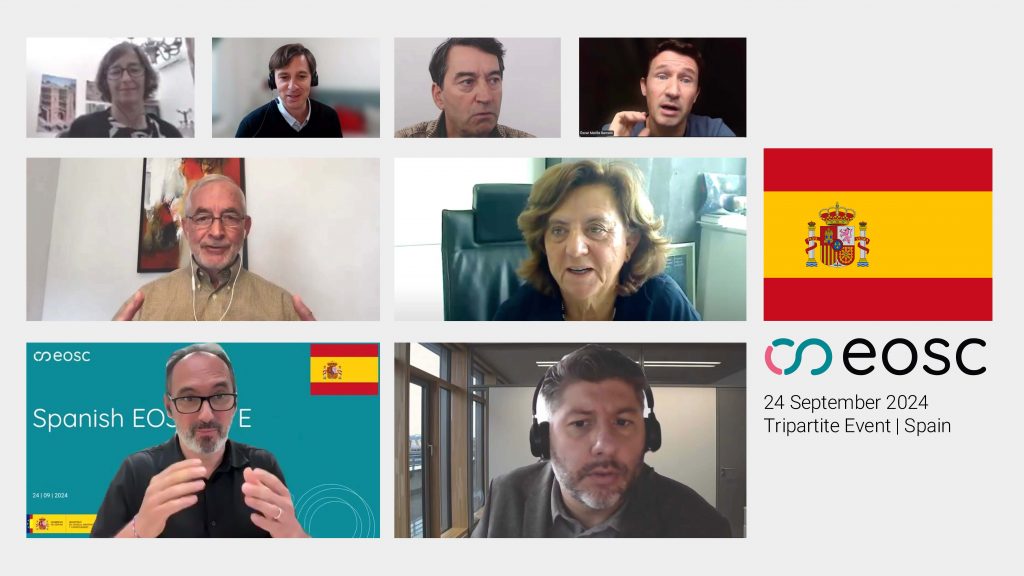
New INFRAEOSC projects with Spanish participation
The active engagement of Spanish institutions supporting EOSC was showcased through new INFRAEOSC projects. Of particular interest were trusted research environments for secure data sharing, which promote cross-disciplinary collaboration in EOSC science clusters.
Starting with the project TITAN (Trusted envIronments for confidenTiAl computiNg and secure data sharing), the University of Murcia, as the project coordinator, presented a software platform that will enrich the EOSC Interoperability Framework and enable access to sensitive data sets from public entities and government agencies. Similarly, SIESTA (Secure Interactive Environments for SensiTive data Analytics), a sister project coordinated by CSIC, also focuses on contributing to the EOSC sensitive data exchange through trusted cloud-based environments, notably in the public administration and healthcare sector.
Spanish institutions also actively participate in EOSC Beyond (CNB-CSIC, UPV, LifeWatch ERIC), EVERSE (Technical University of Madrid, Barcelona Supercomputing Center), and OSCARS. EOSC Beyond will pilot regional and thematic nodes such as LifeWatch. The OSCARS project also has a pilot in the environmental EOSC science cluster ENVRI, where the European Virtual Institute for Research Software Excellence (EVERSE) framework will be integrated into the ENVRI-HUB Knowledge base and Virtual Research Environment. The ambition of EVERSE is to establish a thematic node in the EOSC Federation. Several Spanish representatives also presented their proposals submitted to OSCARS’ 1st Open Call for Open Science Projects and Services.
EOSC Nodes and the EOSC Federation
Peter Szegedi from the European Commission updated the audience on the status of the EOSC EU Node. A new concept of three contributor tiers was presented: Tier 1) native services procured for the EOSC EU Node, Tier 2) onboarded services planned to be open in November 2024, and Tier 3) discoverable virtual credits in the Resource Hub. Upcoming milestones were highlighted with the EOSC EU Node technical launch event in October 2024, followed by production testing, and opening to the research community at the EOSC Symposium 2024 in Berlin.
Bob Jones, representing the EOSC Board of Directors and CERN, further informed about the development of the EOSC Federation Handbook by the Tripartite Group and the consultation to be launched in October 2024. He also presented results of the questionnaire for parties interested in contributing to the build-up phase of the EOSC Federation. A lower number of Spanish institutions expressed interest when compared to other countries.
To explore community expectations of the future EOSC Nodes, the rest of the session focused on an open discussion moderated by Ignacio Blanquer. The participants acknowledged the potential advantages of becoming an EOSC Node, including increased visibility and co-creation opportunities. However, overall responses indicated that more time and consideration would be needed to prepare for the next call for candidate nodes. Some participants also highlighted potential coordination challenges between institutions, funders and Ministries during the build-up phase of the EOSC Federation.
In her concluding remarks, Isabel Diaz of CSIC, expressed their continuous ambition, as the EOSC-A Mandated Organisation for Spain, to participate in and coordinate current and future INFRAEOSC projects. Inmaculada Figueroa followed by emphasising the need to clarify the federation approach in the following meetings with Spanish organisations involved in EOSC-A, so they can explore together how to implement a solid national strategy.


